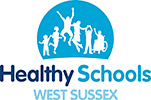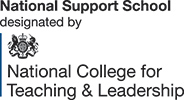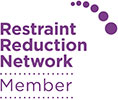Achievement
Click here to read as a PDF document
“The key reason for all assessment is to ensure that teaching and learning are working well and that children are benefiting from a deep and rich education”. Sean Harford
At Manor Green, we collect children’s work to evidence and demonstrate progress. This allows us to measure progress over time from specific starting points in the children’s educations, this could be the end of EYFS, start of academic terms or next step learning journeys. At the end of each year we record wow moments in the children Achievement Books. These books are updated every year and presented to the children and their families when they leave in year 6 which celebrates the progress children have made across their entire time at Manor Green.
We use the children’s work to support and inform our assessment judgements which are then recorded on our bespoke assessment tool. Our assessment tool broadens the knowledge and skills detailed in the National Pre-Key Stage Standards and allows us to record linear and lateral progress of each child. The assessment tool provides us with measurable data that allows for trend analysis, school improvement planning and enables us to set measurable targets for the children.
At Manor Green, we set ambitious goals for our children in all areas of their learning. We set measurable targets of
50% achievement in all core subjects and 20% in foundation subjects annually. For our Complex learning Difficulty and Disability (CLDD) learners, minimum progress expected is 30% in core subjects annually.
Our targets have been set using government guidance and collaboration with our locality ‘like’ school. Although there is movement away from using targets in such a way we recognise the way we can use data and trend analysis to drive school improvement.
In order to benchmark and quantify our targets and to ensure that they are robust and challenging for our children, we are working closely with the company Insights for Learning. We are working in collaboration with them to develop our assessment tool and attending their South East and London evidence working hubs, this gives us the opportunity to work closely alongside with a variety of nationally accredited schools. During these roundtable meetings, we share our assessment and evidence process, work together to moderate, provide challenge and are up to date with national initiatives (enabling us to make improvements where necessary).
By using measurable targets, we can gain an initial insight into pupil attainment that steer meaningful conversations between teachers, senior leadership, parents and pupils. Critically this process allows use to use data effectively to improve and drive teaching and learning, pupil progress and school improvement.
Our assessment targets are complimented by termly progress review meetings, these consultations held between teachers and heads of departments allow us to fully understand how well pupils are performing against our curriculum, their progress from starting points and what, if any, further support is required.
Discussion are centred around children’s health, wellbeing and behaviour as well as academic progress,
positive strategies are put in place where necessary to allow pupils to maximise their potential. All of our pupils make progress in areas beyond our current curriculum focus and these are discussed, detailed and celebrated during our progress review meetings.
It is during these reviews that teachers are held accountable for their children’s progress. This academic year we have encouraged class teachers to discuss with heads of departments how to consider increasing target expectations for children who are achieving within the Outstanding bracket. Following our School improvement review it was essential to ensure that what we deem to be outstanding progress is exactly that. Our outstanding target bracket provides for in excess of 50% progress across the subject, we understand the need for a more personalised approach to target setting. Through progress reviews, we are now looking at how we can further set aspirational goals for our children. Relevant strategies have been put in place to support children and teacher training needs have been identified to continue to promote the pupils personal outstanding progress.
Our teacher judgements are held accountable in internal and external moderation and teacher observation. This has been reviewed and considered still best practice. However, we now use pupil progress meetings to further review progress at a personalised level. Targets are increased or decreased to support appropriate yet ambitious challenge. These alterations are reviewed in triangulation with Assessment, Inclusion lead and relevant Lead learner (2020).
Using measurable targets, we are also able to project progress from the end of Key stage 1 to the end of Key Stage 2. Our internal guidance defines the levels of progress we should be expecting pupils to make regardless of their level of need if their progress is to be judged as good. This progress is reviewed regularly to ensure that is it robust and challenging for each pupil.
To ensure that we are providing challenge and rapid and sustained progress for all our children we continue to follow the latest Ofsted and Government guidance when writing and updating our achievement and curriculum policies.
Overall Annual progress
The chart below (see PDF document) details the progress each child has made overall in all the core subjects at Manor Green (core subjects are English – Reading and Writing, Maths – Number and Shape, Science, Computing and PE).
Our assessment system Onwards and Upwards takes a modal snapshot of how each child is performing in each subject and gives an overall achievement ranking.
All pupils 2019-2020:
School evaluation of attainment and progress for all groups, including intervention groups has been frequent and has involved class teachers, Heads of Department and Subject Leaders and Achievement and Curriculum lead. All staff are empowered to use their data to plan strategically for the next years SIP and to inform them of any gaps in achievement.
These pupils had been ‘red alerted’ following data trend analysis and in progress review meetings. Class teachers put personalised interventions in place to closely monitor, track and further progress where necessary. These interventions are reviewed termly to ensure positive progress is being made.
- 22% of pupils requiring support, outstanding progress was made in at least 1 core subject (English Reading, Writing, Number, Shape, Working scientifically, PE or Computing)
- 78% of the pupils requiring support are within specialist classes
Whilst it is the duty of Manor Green Primary to ensure that all children make outstanding progress, measured by Ofsted criteria, we also need to ensure that pupils make outstanding progress in the context of their own personal circumstances. This is particularly true of our children following the Semi-Formal curriculum.
Each child following our Semi-Formal Curriculum has Personal Learning Goals devised from their EHCP across the four strands identified in the SEND Code of Practice; Cognition and Learning, Physical and Sensory, Social, Emotional and Mental Health and Communication and Interaction. Onwards and Upwards currently details only the progress made across the Cognition and Learning targets, this is only 25% of the children’s curriculum and learning. At Manor Green we consider all four areas taught in the Semi-Formal Curriculum are of equal importance. We are currently exploring the best way to record the progress children make in these areas following the government guidance on Engagement Profiles.
We have introduced a new curriculum this year, it is a change in teaching delivery and assessment. The curriculum supports children through a highly personalised, therapeutic learning plan in response to their EHCP targets and significant behaviour needs.
One child of the children who was flagged as red alert in Cognition and Learning has spent a significant time absent from school due to extended visit to see family abroad. Another of the children had a significant brain surgery which meant he has had significant medical absences.
The remaining 4 children were in classes where the teachers were identified as requiring support, these classes now have teachers new to role. A decision to monitor impact and progress half termly for these children has been made. We also have a robust coaching and mentoring programme in place to support our new teachers.
Progress from starting points is clearly demonstrated across all strands of learning for all the children in their Personal Learning Goals on Evidence for Learning and in Progress Review Meeting Records.
- -22% of the pupils requiring support are within generic classes
1 has had significant emotional and behavioural difficulties this year which has resulted in a placement at an Pupil Referral Unit. Engagement in learning was very low due to self-esteem, this triggered significantly challenging behaviour and became a significant barrier to his learning. Following progress review meetings and careful observations a reduced timetable was introduced and using the engagement model teaching expectations and challenge were lowered. Our priority for this child was to support self-regulation, behaviour management and maintain independence to enable a successful transition to year 7. Ongoing progress review meetings and head of department observations showed outstanding progress has been made across the Autumn and Spring term in his resilience, self-regulation and interaction with his peers. Extrinsic factors significantly impacted his behaviour which resulted in Manor Green Primary no longer being a suitable school placement.
One child in year 1, has had significant medical needs and has had prolonged periods of time absent from school due to medical appointments. Using progress reviews the class teachers have identified that he requires lots of opportunity for repetition and highly differentiated multi-sensory teaching approaches. As identified within our school CLDD category 2 child, his targets have already been adjusted to the semi-formal expectation. As he moves to year 2 these strategies will be shared with the new class teacher and his progress and engagement within the formal curriculum will continue to be monitored.
- -66% of the pupils requiring support have significantly low attendance
Of the children in this category our family support HLTAs are working closely with the families to support positive engagement with pupil attendance. However, 3 of the children have significant medical needs that impact attendance. Pupils continue to show steady progress term by term in all areas of their personal development, monitored through their Personal Learning Goals and have made significant achievement in holistic progress in line with their level of medical need.
- 70% of our year 6 leavers made expected to outstanding progress in all core subjects during their time in key Stage 2.
Refining the data further highlights that 3 pupils did not make outstanding progress in all core subjects as a result of their specific needs presenting through the year, as detailed above one child is no longer at MGP due to his significant behavioural difficulties. One other as detailed above spent significant time abroad visiting family (authorised absence).
The other child needed several therapeutic strategies to enable the team to support the pupil’s safety and wellbeing as well as in supporting the child to engage in learning and self-regulation.
The child has had significant mental health difficulties which have been support by Beacon House through external therapy sessions. She moved to a different class during the year which made significant improvements to engagement and behaviour. Although her data does not reflect the progress made, the child’s work evidence and progress reviews detail the positive holistic achievement the child has made.
We keep behaviour incident, progress reviews and therapy data which is available to support these holistic achievements.
- 68% of pupils receiving pupil premium funding made outstanding progress in line with their peers.
- 11% of pupils receiving pupil premium funding made good progress in line with their peers
- 7% are working towards their target within 5%
- 14% of pupils receiving pupil premium funding pupils needed support towards their targets within 10%.
Pupil premium money is used in a targeted and strategic way to ensure that all of our pupils have the same opportunities, regardless of their social situation. Pupil Premium, including Free School Meals children are performing in line with their peers. Of the 2 pupils needing support detail above, 1 is in year 1 with significant medical conditions and the other is a year 6 child who has had long absences due to the families wishing to visit family abroad.
The child within the working towards bracket has a degenerative condition, we have personalised his learning goals and targets. Progress with be monitored more regularly to ensure that the formal curriculum learning style is fully accessible and the most effective way to deliver teaching and learning.
Of Pupils in all recognised vulnerable groups 92% made expected to outstanding progress in line with their peers.
Through data analysis in subject self-reviews it is evident that we are able to ensure outstanding progress for all pupils who are under social care.
Of the four pupils not making outstanding progress the school is working closely with the families to support behaviour, engagement and attendance, progress reviews and TAF chronology detail specific support, three of these pupils fall in to the category of low attendance due to family visits and medical needs. The remining one child falls within the specialist class category detailed above. We continue to concentrate on the personalisation of learning for pupils with complex needs and CLDD
This enables our staff team to ensure that every child fulfils their potential or maximises their opportunity of increased happiness, ability to learn and improved behaviour. Analysis of decreased behaviour incidents within school as well as outstanding progress data illustrates how successful this has been.
Specific information regarding the interventions in place for CLDD children are recorded in progress reviews due to the fluid nature of the category of need. How CLDD is defined at Manor Green is recorded within the Curriculum and Achievement policies.
Lead Learners regularly review the progress made for CLDD children and ensure specific interventions are in place.
Girls and boys continue to achieve in line with each other at Manor Green.
Further breakdown of the data suggests that there is a gap in achievement for boys in their reading and writing. Our English lead has detailed the action plan for the forthcoming year to target this gap, this has been included within the School Improvement Plan as a priority.
We continue to monitor EAL achievement, as all children at Manor Green have a communication difficulty specific EAL support is evident in all classes. As a school we have signed up to a universal SALT approach which requires visual, signing and key word processing support.
Above is a breakdown of achievement for the languages spoken at Manor Green.
- Due to Covid-19 no children sat their SATS
- (We would have not submitted any of our year 6 pupils for SATS as we do not have any children working at the appropriate level)
- Due to Covid-19 no children sat the Phonics Screening test 2020.
- Year 1 and 2 children were not included in our phased return for 2020, we will ensure that our year 3 children for the academic year 20/21 will be included in the testing.
- We continue to have regular moderation meetings (3 per term) throughout the year, we have this year extended the moderation to include PHSE and Computing.
Our practice remains outstanding, this is verified at external moderation events, our judgments are qualified by other locality schools and we have supported other schools to develop their moderation process.
Core subject leaders lead moderation sessions and focussed training sessions (taken from progress review actions) for their subject to ensures that our learning judgements are consistent across the school; they collect evidence which demonstrates this and are available for advice on levelling.
- We engage with moderation events with colleagues in other ‘like’ special schools and attend local mainstream moderation for English and Maths.
- We now included PSHE and Computing within our moderation process
- Moderation events and planning meetings are used to review our curriculum intent and ensure it is fit for purpose, changes are made based on teacher and pupil reflections made during the teaching of the topic and the cohort of children learning.
- We continue to use the Pre-Key Stage standards and West Sussex Key Milestones to advise our assessment and monitoring system.
- Efficient and effective termly tracking of individual pupil levels has allowed teachers to set next steps and learning intentions that are challenging and rigorous.
- We are continuing to transfer our assessment system to Evidence for Learning and Insights for learning; our timeline was unfortunately delayed due to the Covid-19 Lockdown
Our app based evidence and workbook system is now embedded in our practice. We are now focussing on how to refine our evidence system to further demonstrate pupil and parent voice in our curriculum and assessment model.
The introduction of Insights for Learning will enable a more streamlined approach for teachers to effectively evaluating learning and assess its impact towards progress.
This is our first year of using our new Assessment System. All data is now held on a central assessment system, allowing SLT to track, monitor and analyse the progress of individual pupils and vulnerable sub groups.
Evidence for Learning continues to enable a comprehensive overview of the progress of each child and allows us to analyse data more comprehensively and strategically, much like our previous system Onward and Upwards. However, our new system Evidence for Learning directly links children’s work electronically to our assessment framework, thus making the process more succinct and reducing teacher workload. Children’s work can be directly linked to both national and our bespoke assessment statements enabling progress overtime to be demonstrated and shared with parents, pupils and all other stakeholders effectively. This, along with our continued regular moderation, will ensure that we assess accurately which leads to informed, personalised and differentiated planning.
Evidence for Learning has also enabled subject leaders, class teachers and SLT to look at children’s work and assessment statements together in one place which ensures greater impact in our effectiveness and supports school improvement.
Following subject reviews and progress review meetings it is clear that embedding our curriculum ethos, structures and mastery of skills are a priority. Consequently, we have planned to develop teaching delivery to support the development skills and subject knowledge appropriate for each pupil which leads towards world readiness.
Early Years Foundation Stage:
Due to Covid-19 teacher assessments were unable to be made for our EYFS children. To ensure a smooth transition to Year One key workers have baselined pupils in English and Maths on Evidence for Learning. This enables starting points to be identified to enable our Year One teachers to effectively plot the next stages in the children’s learning journeys as well as allowing us to project and monitor progress.
We have incorporated developmental mile stones from ‘Development Matters’ within the stages of learning which means that targets will continue to be meaningful. This will also enable us to track progress of our EYFS pupils without jeopardising their early learning curriculum. We are continuing to refine our EYFS assessment practice and have looked
at target setting in collaboration with both mainstream and special needs EYFS settings.
Our ‘Most Able’
Our most able pupils are participating in various school-wide project as part of our enrichment program which aims to raise self-esteem and aspirations as well as extending their learning in their gifted subject. This is in the form of special projects; these activities and STEM based learning aim to progress their learning in a functional way beyond classroom learning as well as streamed maths and phonics. Data scores and teacher judgement is used to determine our ‘most able’ learners and teachers are aware of which children in their class are classed as ‘most able’ and effective challenges are put in place for them.
The Coming Year
By the end of this academic year, we aim to have:
- Evidence for Learning information will inform Insights for Learning and will be embedded in school life
to record learning. - Semi and pre-formal curriculums PLGS are being devised and tracked effectively.
- Communication PLGS for our whole school population will be developed and assessed rigorously
- We will be able to track the progress made by our children in PSHE both in their curriculum and key skills learning.
“Class and subject teachers, supported by the senior leadership team, should make regular assessments of progress for all pupils. These should seek to identify pupils making less than expected progress given their age and individual circumstances… It can include progress in areas other than attainment – for instance where a pupil needs to make additional progress with wider development or social needs in order to make a successful transition to adult life.”
The SEND Code of Practice: 0 to 25 years
Click on this link to view School Performance Tables








